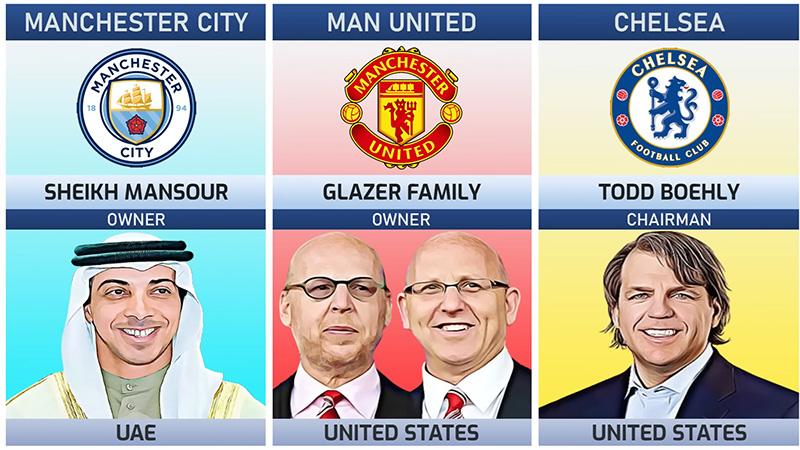In the realm of football (soccer), the drama and excitement on the pitch are not the only driving forces behind a club’s success. Behind the scenes, a group of influential and affluent individuals shapes the destiny of their beloved teams.
From visionary tycoons to royalty, these club owners have poured their immense wealth into transforming their respective football clubs into formidable forces on the global stage.
Join us as we delve into the world of the top 10 richest football club owners and explore the impact of their financial prowess on the beautiful game. So, stay focused.
Top 10 Richest Football (Soccer) Club Owners
The world of football is not only shaped by the talent on the field but also by the wealthy and influential club owners behind the scenes. These individuals have made significant financial investments to elevate their respective clubs to new heights, transforming them into global powerhouses.
Here is a list of the top 10 richest football club owners, each wielding immense resources and contributing to the sport’s ever-growing allure.
1. Roman Abramovich (Chelsea FC – $30 billion)
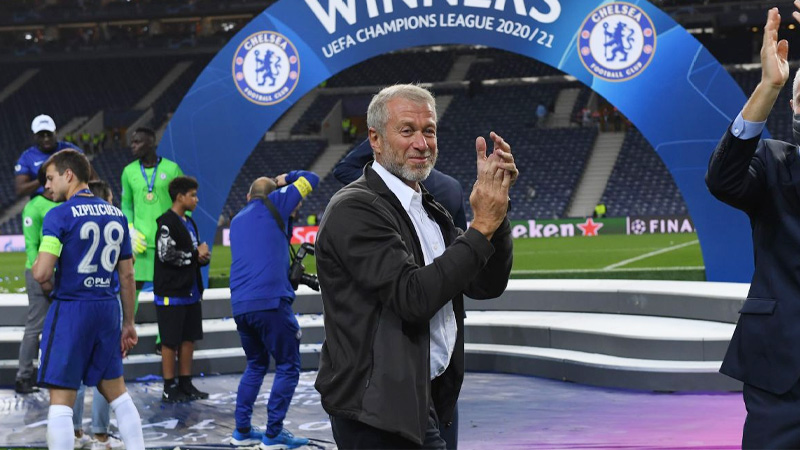
Source: espn
Russian billionaire Roman Abramovich is renowned for his ownership of Chelsea Football Club, a Premier League giant based in London, England. Abramovich acquired the club in 2003 and has since transformed it into a footballing powerhouse.
His financial backing has facilitated significant investments in top-tier players and state-of-the-art facilities, propelling Chelsea to numerous domestic and international successes.
Under his ownership, Chelsea has clinched multiple Premier League titles, FA Cups, and UEFA Champions League trophies. Abramovich’s willingness to fund high-profile transfers has earned him a reputation as one of the most influential and extravagant owners in world football.
2. Sheikh Mansour bin Zayed Al Nahyan (Manchester City – $30 billion)
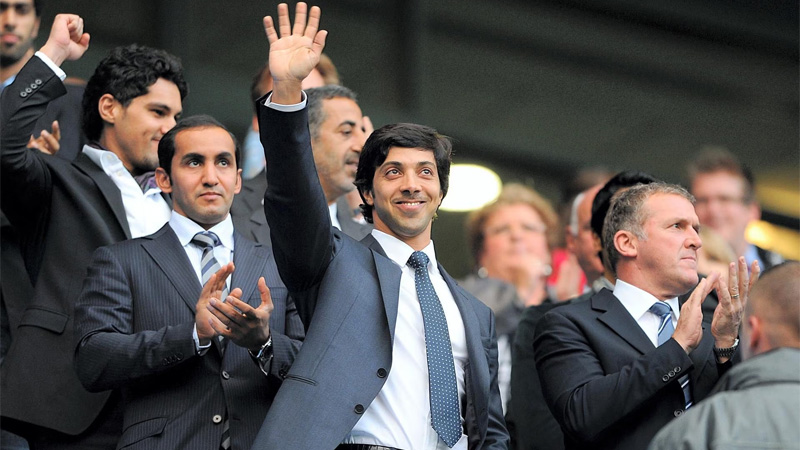
Source: thenationalnews
Hailing from the United Arab Emirates, Sheikh Mansour bin Zayed Al Nahyan, a member of the Abu Dhabi royal family, took ownership of Manchester City in 2008. His acquisition of the club ushered in a new era of unprecedented prosperity.
With substantial financial resources, Mansour transformed Manchester City into a dominant force in English football, leading them to their first Premier League title in 2012 and multiple league triumphs thereafter.
His significant investments in the squad, coaching staff, and infrastructure have elevated Manchester City to global prominence.
3. Dietrich Mateschitz (RB Leipzig – $20.7 billion)
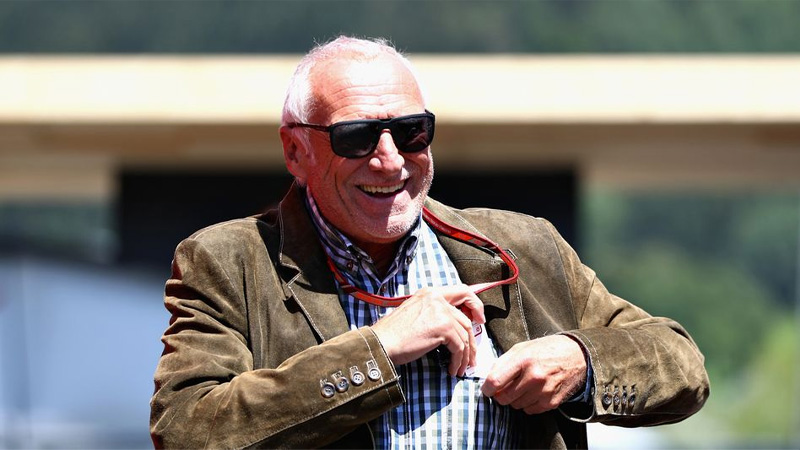
Source: spiegel
As the co-founder of the Red Bull energy drink company, Austrian businessman Dietrich Mateschitz has been instrumental in the establishment of RB Leipzig as a competitive force in German football.
Under his stewardship, the club experienced rapid ascension through the leagues, defying traditional footballing norms with financial backing from Red Bull.
This investment strategy led RB Leipzig to the Bundesliga, and they have consistently competed at the highest level since. Mateschitz’s unconventional approach to football ownership has brought both praise and criticism from the football community.
4. Andrea Agnelli (Juventus – $19.7 billion)
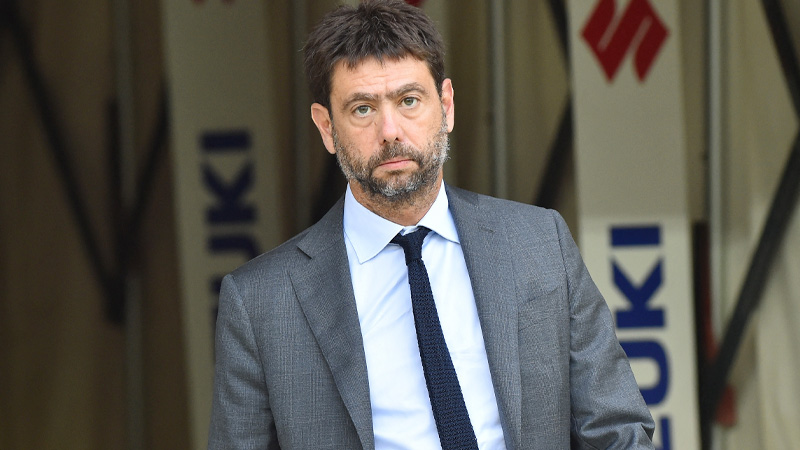
Source: reuters
Andrea Agnelli, scion of the prominent Agnelli family, holds a significant role in the ownership of Juventus, one of Italy’s most illustrious football clubs. As the president of the club, he has overseen Juventus’ continued dominance in Serie A, with multiple consecutive league titles.
Agnelli’s leadership and strategic vision have also driven the club’s ambitions in European competitions, with Juventus consistently participating in the UEFA Champions League. The Agnelli family’s deep-rooted connection with the club has solidified their status as iconic figures in Italian football history.
5. Alisher Usmanov (Everton – $19.5 billion)
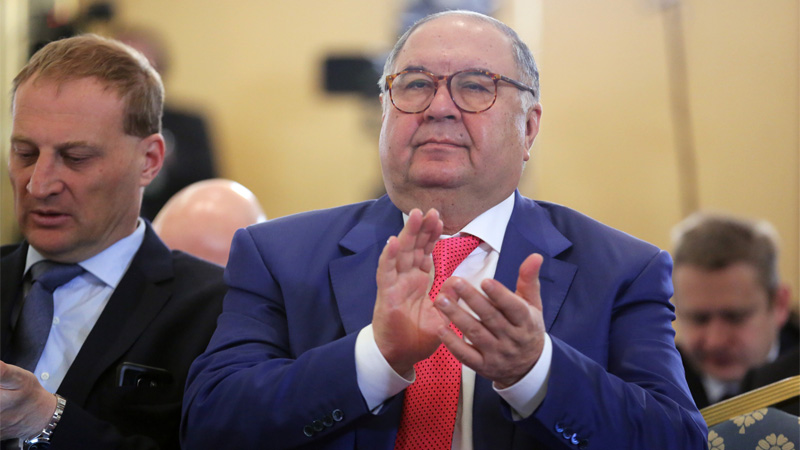
Source: bloomberg
Russian billionaire Alisher Usmanov’s involvement in football ownership extends to Everton Football Club in the English Premier League. While not the majority shareholder, Usmanov’s financial backing has contributed to Everton’s ambitions of breaking into the top echelons of English football.
His investment in the club’s infrastructure and squad has bolstered Everton’s competitive capabilities, aiming to challenge for European qualification and silverware in the future.
6. Philip Anschutz (LA Galaxy – $10.8 billion)
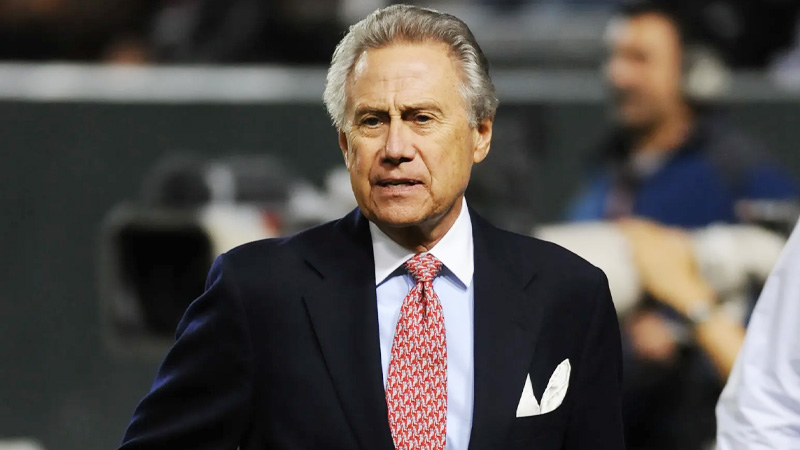
Source: billboard
American businessman Philip Anschutz is a prominent figure in Major League Soccer (MLS) as the owner of the LA Galaxy. As a co-founder of AEG (Anschutz Entertainment Group), Anschutz played a significant role in the development of soccer in the United States.
Under his ownership, the LA Galaxy became one of the most successful and recognizable franchises in MLS history, winning multiple MLS Cups and providing a platform for international stars to showcase their talents in the American soccer landscape.
7. Nasser Al-Khelaifi (Paris Saint-Germain – $8 billion)
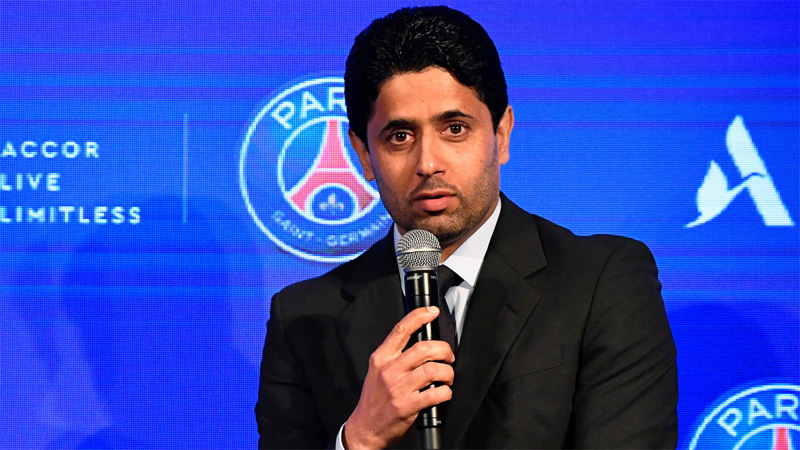
Source: si
Qatari businessman Nasser Al-Khelaifi is the driving force behind the ascent of Paris Saint-Germain (PSG) to the summit of French and European football.
Under Al-Khelaifi’s ownership, PSG has undergone a remarkable transformation, securing numerous Ligue 1 titles and establishing itself as a force to be reckoned with in the UEFA Champions League.
Al-Khelaifi’s ambitious signings of high-profile players and major financial investments have elevated PSG to the status of one of the wealthiest and most successful football clubs globally.
8. Zhang Jindong (Inter Milan – $7.4 billion)
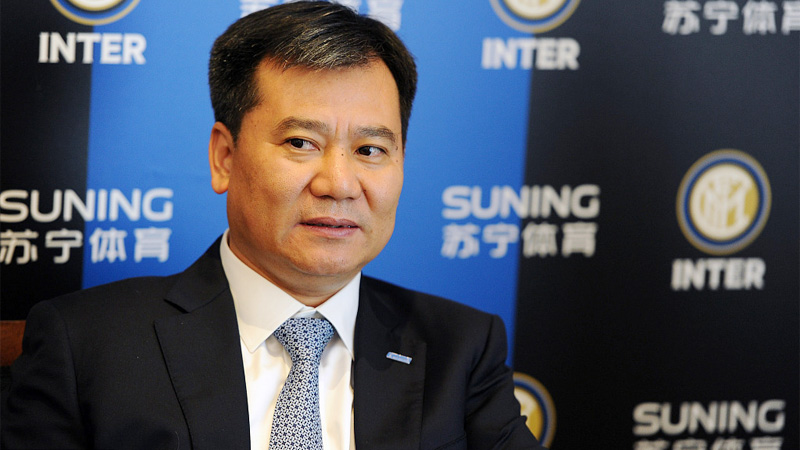
Source: chinadaily
Chinese businessman Zhang Jindong is a key figure in the ownership of Inter Milan, one of Italy’s most storied football clubs.
As the chairman of the Suning Holdings Group, Zhang has provided financial stability and resources to Inter Milan, enabling them to compete at the highest level of Italian football and on the European stage.
Under his ownership, Inter Milan has experienced a resurgence, winning Serie A titles and achieving significant success in both domestic and continental competitions.
9. Rinat Akhmetov (Shakhtar Donetsk – 5.7 billion)
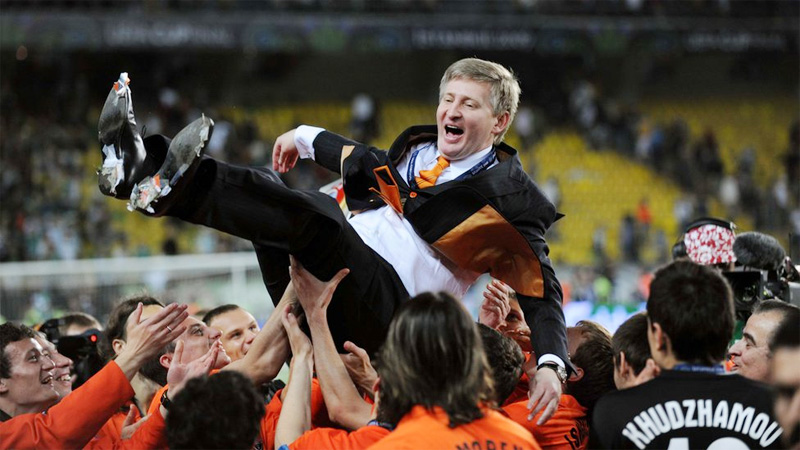
Source: bbc
Ukrainian billionaire Rinat Akhmetov’s ownership of Shakhtar Donetsk has seen the club establish itself as a dominant force in Ukrainian football.
Akhmetov’s substantial financial support has allowed Shakhtar to recruit top talent from both Ukraine and abroad, leading to a prolonged period of domestic success, with numerous Premier League titles and domestic cup triumphs.
Additionally, the club has achieved notable feats in European competitions, becoming a regular participant in the UEFA Champions League.
10. Dietmar Hopp (TSG Hoffenheim – $4.3 billion)
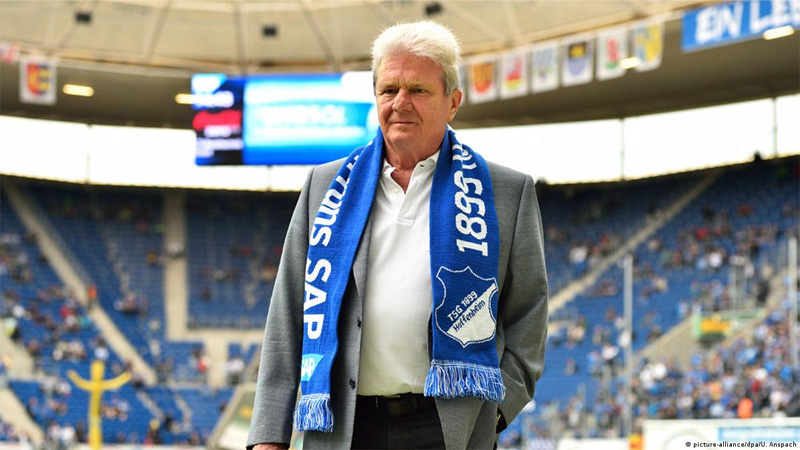
Source: dw
German entrepreneur Dietmar Hopp’s ownership of TSG 1899 Hoffenheim represents a unique story in football. As one of the co-founders of SAP, a global software corporation, Hopp’s wealth has enabled significant investments in his hometown club, propelling them from lower-tier divisions to the Bundesliga.
Hoffenheim’s rise from obscurity to top-flight football is a testament to Hopp’s commitment to his local community and his passion for the sport. His ownership has seen Hoffenheim become a respected and competitive force in German football.
Impact of the Top 10 Richest Soccer Club Owners
The impact of the top 10 richest soccer club owners extends far beyond their personal fortunes.
These influential individuals have wielded their immense wealth and resources to shape the trajectory of their respective clubs and leave a lasting mark on the footballing world. Here are some key ways in which their ownership has made a significant impact:
Financial Stability and Investment
The financial backing of these wealthy owners has provided their clubs with much-needed stability and the ability to make substantial investments. They have infused funds into player transfers, allowing the acquisition of top talent from around the world.
Moreover, their financial support has enabled the construction and renovation of state-of-the-art training facilities and stadiums, providing the best possible environment for player development and fan experiences.
Globalization and Branding
Many of these soccer club owners come from diverse international backgrounds. Their ownership has propelled their clubs to a global stage, increasing their fan bases and commercial appeal worldwide.
Through strategic marketing and branding initiatives, these clubs have become recognizable brands beyond their domestic leagues, leading to lucrative sponsorship deals and lucrative merchandise sales.
On-field Success and Trophies
The impact of these owners is evident in the on-field success of their clubs. Their financial investments have translated into improved squad depth, tactical prowess, and performance levels.
As a result, their clubs have enjoyed sustained success in their respective domestic leagues, with multiple league titles and cup victories. Some have also achieved noteworthy accomplishments in prestigious international competitions like the UEFA Champions League.
Youth Development and Academies
Several of these soccer club owners have recognized the value of youth development and invested in top-tier academies to nurture young talents.
By focusing on talent development from a young age, these clubs have produced a pipeline of skilled players, some of whom have gone on to become stars in their own right and contribute to the success of their national teams.
Community and Social Impact
The influence of these wealthy owners extends beyond the football pitch. Through various philanthropic initiatives and community programs, they have made a positive impact on the lives of people in their local communities.
Whether through youth outreach programs, charitable donations, or infrastructure development, their involvement has gone beyond football to address societal needs.
Competitiveness and Rivalries
The significant financial backing and success of these clubs have contributed to the competitiveness of their respective leagues. Their strong performances have often sparked intense rivalries with other clubs, leading to thrilling and high-stakes matches that capture the attention of football fans worldwide.
Managerial Stability and Vision
The financial support from these owners has allowed their clubs to be patient with managerial appointments and provide stability even in challenging times. This long-term vision and commitment to club projects have been vital in fostering team cohesion, which often translates into improved performances.
FAQs
Who is the richest football club owner in the world?
The wealthiest football club owner is Sheikh Mansour bin Zayed Al Nahyan, a member of the royal family of Abu Dhabi, and the owner of Manchester City Football Club.
Renowned for his significant financial backing, Sheikh Mansour’s ownership has been instrumental in Manchester City’s rise to prominence as a dominant force in both English and European football.
Which football club owner transformed a club’s fortunes through unconventional means?
Dietrich Mateschitz, the co-founder of the energy drink company Red Bull, adopted an unconventional approach with RB Leipzig. Heavily supported by Red Bull’s financial resources, Mateschitz engineered the club’s rapid ascent through the German football pyramid.
Despite facing criticism for bypassing traditional footballing norms, RB Leipzig emerged as a formidable force in German football and made significant strides in European competitions.
Who are the influential football club owners from outside Europe?
Notable non-European club owners include Nasser Al-Khelaifi from Qatar, who owns Paris Saint-Germain (PSG). His ownership has elevated PSG to the status of a global football powerhouse, with multiple domestic titles and strong showings in the UEFA Champions League.
Rinat Akhmetov from Ukraine is the owner of Shakhtar Donetsk, and Alisher Usmanov from Russia holds ownership of Everton Football Club in the English Premier League. Both Akhmetov and Usmanov have significantly impacted their respective clubs’ fortunes through strategic investments.
How has the ownership of these individuals impacted their clubs’ success on the field?
The financial backing of these owners has been a game-changer for their clubs. They have been able to make significant investments in acquiring top-tier players, securing world-class coaching staff, and upgrading training facilities.
The infusion of resources has enhanced the competitive capabilities of their teams, resulting in sustained success in domestic competitions and improved performances in international tournaments.
What does the future hold for these wealthy football club owners and their respective clubs?
The future for these esteemed owners and their clubs appears promising. Their continuous financial support and strategic vision signal a commitment to sustained success.
With their resources, the clubs are likely to remain competitive in their respective leagues and continue challenging for domestic and international honors.
Football fans worldwide eagerly anticipate witnessing more exciting endeavors and achievements from these football club owners and the teams they passionately support.
End Call
Beyond the electrifying moments on matchdays, the influence of the top 10 richest football club owners reverberates across the global footballing landscape. From Europe to the Middle East, these visionaries and entrepreneurs have wielded their immense wealth to create footballing dynasties.
The unwavering financial support and strategic decisions made by these owners have transformed their clubs, elevating them to the pinnacle of footballing success.
As these influential individuals continue to shape the destiny of their beloved teams, football enthusiasts worldwide eagerly anticipate witnessing more triumphs and accolades in the journey that lies ahead. Thank you so much.

